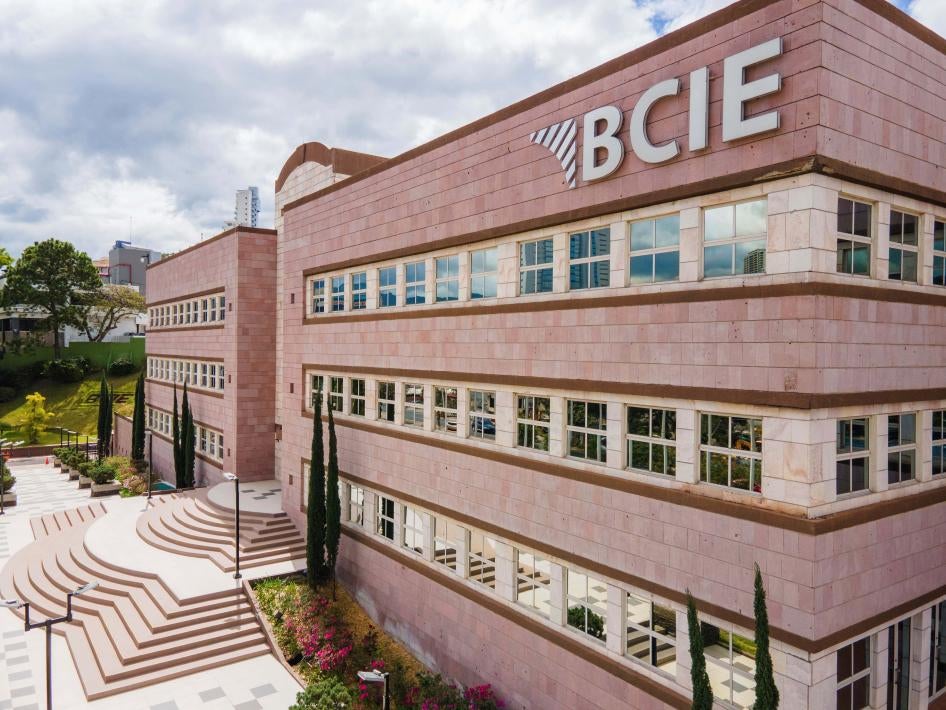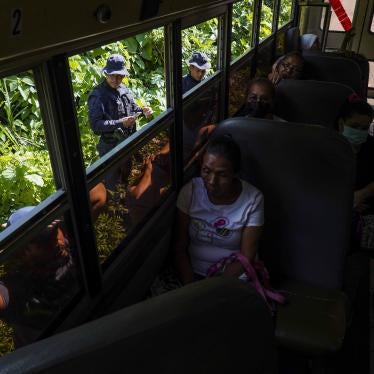On November 17, the Assembly of Governors of the Central America Bank for Economic Integration (CABEI) will elect a new president for the next five years. The appointment comes at a critical juncture for the institution and the future of the Central America region.
The Central American Bank for Economic Integration is an international development bank and one of Central America’s largest lenders. In 2022, it approved operations for projects that amounted to over US$3 billion, mostly aimed at the public sector. One of its primary objectives is to advance economic and social development in the region.
But the Bank has at times strayed from its stated goals. It has provided funds without adequate oversight and approved loans that appear to have contributed to human rights violations. Further, since Dante Mossi was elected president in 2018, the Bank has weakened institutional controls, including by removing the internal auditor, and increased lending to authoritarian governments like those of Nicaragua and El Salvador.
The Bank has 23 approved loans to Nicaragua, for a total of over US$3.5 billion, roughly 28 percent of the bank’s lending portfolio. Projects worth more than US$2 billion were approved after April 2018, when the Nicaraguan government's brutal crackdown on protesters triggered a profound human rights, political, and social crisis that continues to worsen. Yet the Bank appears not to have addressed the heightened risk that funds would be misused or its policies violated.
For example, the Bank approved funds to “expand the Nicaraguan National Police”, and only cancelled funding in March 2020, almost two years after it had become evident that the National Police was implicated in grave human rights violations.
In November 2020, the United Nations Green Climate Fund approved the financing proposal presented by the CABEI for the Bio-CLIMA Project. The project aims to “restore degraded forest landscapes” in the Bosawás and Río San Juan Biosphere Reserves, located on indigenous and Afro-descendant territories in Nicaragua. The project's overall budget is US$116 million, with US$64 million coming from the UN fund and over US$44 million from the CABEI, the entity responsible for carrying out the project.
In July 2023, the Green Climate Fund Board temporarily suspended the first disbursement for the project, noting the CABEI had engaged in “instances of policy non-compliance.” The decision stems from an investigation initiated by the Green Climate Fund’s Independent Redress Mechanism, after Indigenous people said that the project had been approved without ensuring their rights to free, prior, and informed consent.
In El Salvador, the CABEI has 14 active loans, with funds approved for a total of over US$1.6 billion. These include loans to agencies implicated in human rights violations during President Nayib Bukele’s “war on gangs,” including the National Civil Police, the Ministry of Defense, the Attorney General’s Office, and the penitentiary system. As our research shows, security forces have committed widespread human rights violations, including arbitrary arrests, enforced disappearances, and torture in the context of such measure.
In 2012, the Bank approved US$24 million for the Agua Zarca hydroelectric dam project, on the Gualcarque River, in northwestern Honduras. The loan provided funds for the company Desarrollos Energéticos S.A. (DESA) which, according to an audit by the Bank, had “no experience in power generation projects.”
The dam project was also beset by other grave problems that should have raised alarm bells for the Bank. Environmental and Indigenous groups, particularly the Civic Council of Popular and Indigenous Organizations of Honduras (COPINH), led by the Indigenous leader and environmental-rights activist Berta Cáceres, campaigned against the construction of the dam, citing a lack of consultation with communities.
COPINH members faced constant harassment and intimidation due to their activism. Tragically, Cáceres was murdered in March 2016. A court found David Castillo, the former head of Desarrollos Energéticos, guilty of co-conspiring in her killing, saying he targeted Cáceres for her opposition to the dam project. Castillo, who served as a public official at the National Electric Power Company at the time Desarrollos Energéticos obtained the concession, has also been investigated for colluding with Honduran officials to obtain a permit for the dam without conducting accurate and complete environmental feasibility studies.
Central America is facing several human rights problems that are putting people at risk and leading many to seek safety elsewhere. These include high levels of crime and violence, democratic backsliding in El Salvador and Guatemala, and the systematic repression carried out by Daniel Ortega’s government in Nicaragua. Corruption, pervasive poverty and inequality, government attacks on the press and civil society, and the impacts of climate change compound these problems.
The Central American Bank for Economic Integration could play a key role in helping Central America to overcome some of these challenges and help fulfill social and economic rights.
The Assembly of Governors should ensure a transparent and fair process to elect a president who can restore trust, transparency, and accountability and ensure that the Bank fulfills its role as a catalyst for much needed development of the region.








